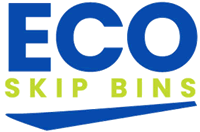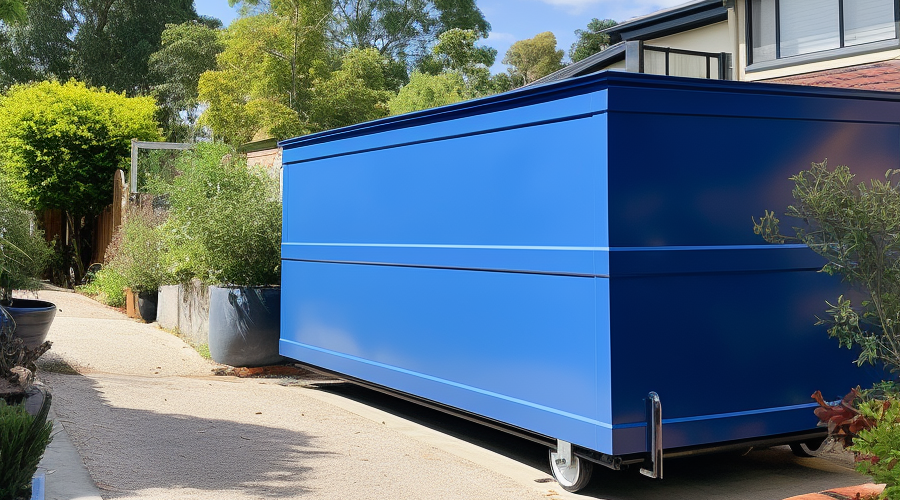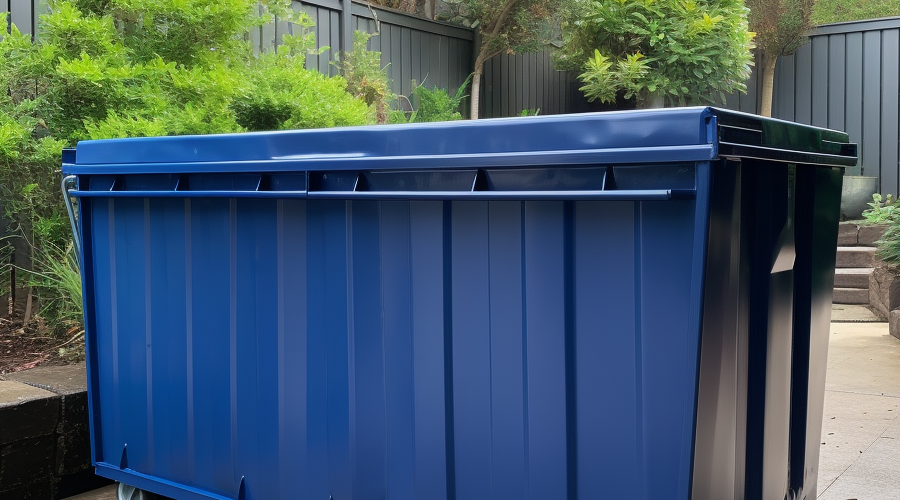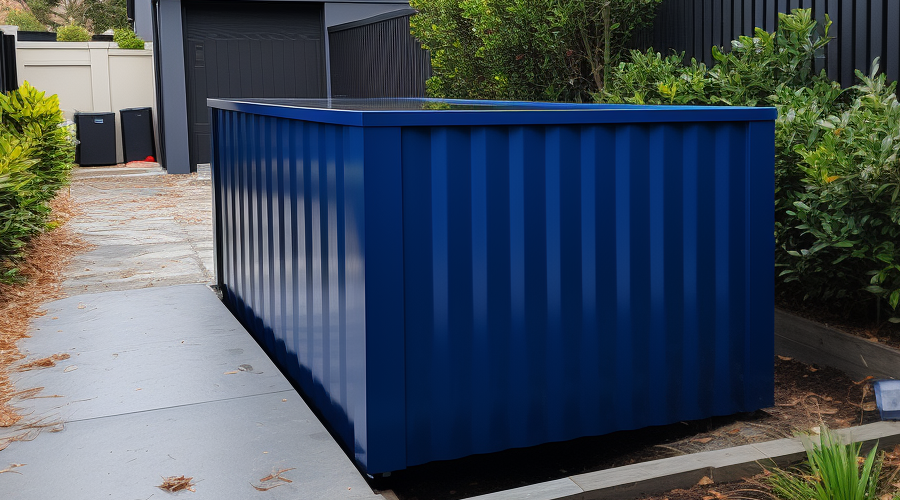10 Environmental Effects of Skip Bins
Maximising the Eco-Friendliness of Skip Bins
Skip bins are a convenient way to dispose of waste and clutter.
But how do they impact the environment?
In this article, skip bin hire experts explore 10 key environmental effects of skip bins – both positive and negative.
As a homeowner or business owner, you want to make responsible choices.
Waste Builds Up and Harms the Environment
Let’s start with the key problem that skip bins are designed to solve: waste accumulation. As convenient as it is to toss items into the trash, this causes significant environmental issues:
- Landfills overflow with waste and energy that could have been reused or recycled. Landfills take up space, leak toxic substances, and release methane into the atmosphere.
- Illegal dumping of large items harms natural areas like parks and waterways. Bulky objects like mattresses and appliances blight nature.
- Improper disposal of hazardous waste – like carbon footprint, batteries, toxic chemicals, and e-waste – allows toxins to leach into soil and water. This poisons ecosystems.
- Piling up garden waste at home or work is unsightly and unhealthy. It attracts pests, pollutes air and waterways, and poses a safety risk from blocked exits or fire hazards.
Clearly, waste harms the environment when not disposed of properly. So how can skip bins help solve this pressing problem?
Skip Bins Provide Convenient Waste Disposal
Skip bins offer a convenient solution for collecting and removing large volumes of waste removal. Homeowners and businesses can simply “skip” their waste problems by having an empty bin delivered, filling it up with junk, and having it hauled away.
Compared to personally transporting waste items in a car or truck, skip bins provide:
- Large capacity – A single bin can hold 1 to 15 cubic meters of waste material. No need for multiple trips to the waste facility.
- Labor savings – No lifting or loading required. The bin provider does this work for you. Just fill ‘er up!
- Flexibility – Bins come in different sizes for variable waste streams. Temporary bins can be used for one-off events or projects.
- Efficiency – Waste goes directly from the pickup point to a sorting/disposal site. No detours required.
For busy households and companies, skip bins are a time-saver and back-saver. They facilitate major cleanouts or period proper waste management in an eco-friendly way.
How Skip Bins Can Harm the Environment
While skip bins provide a useful service, they also have some potential downsides. Here are 5 main environmental impacts to be aware of:
1. Increased Consumerism and Waste
Having an “easy button” for waste disposal encourages wastefulness. Some people fill skip bins with items that could have been reused, repaired, or recycled.
2. Transportation Emissions
Transporting heavy bins by truck over long distances emits carbon. This contributes to climate change and smog.
3. Contamination of Recyclables
Mixing waste types leads to lower recycling rates. Many users toss trash into bins designated for clean recyclables or green waste.
4. Improper Waste Disposal
Waste in bins may still end up in landfills instead of recycling centers. Some providers send mixed loads straight to landfills.
5. Resource Extraction
Making new skip bins requires mining metals and minerals. Over time, production depletes natural resources.
So while skip bins provide convenience, they can enable wasteful habits. Conscientious choices are needed to minimise any eco-harm.
10 Tips to Use Skip Bins More Sustainably
The good news is you can take steps to shrink the environmental footprint of your skip bin usage. Here are 10 tips:
1. Rent bins only when necessary
Avoid overusing bins “just because you can.” Only get a bin for major cleanouts or construction/renovation projects.
2. Choose the right bin size
Get the smallest bin that will fit your needs. Oversized bins encourage filling with unneeded “junk.”
3. Load it fully
Stack items neatly and maximise what goes inside. Don’t waste bin space or fuel on partially-filled loads.
4. Recycle and repurpose first
Remove usable, recyclable, or compostable items before loading the skip. Divert these from landfills.
5. Sort your waste
Keep recycling, green waste, and general waste in separate sections of the bin. This results in higher recovery rates.
6. Avoid contamination
Never place hazardous chemicals, batteries, oils, or other dangerous materials into general waste bins. Dispose of these properly.
7. Select eco-friendly providers
Choose companies that run CNG trucks, offset emissions, or send waste to facilities with high recycling rates.
8. Minimise transportation distance
Have bins dropped off and picked up from locations that minimise transport miles. Cluster projects together.
9. Rent local
Support businesses based in your own community. Their trucks likely drive shorter distances.
10. Cancel promptly
Return bins as soon as they are full or the project is done. Don’t keep them longer than absolutely needed.
Frequently Asked Questions
How are skip bins more eco-friendly than doing multiple dump runs yourself?
Skip bins consolidate waste transport into single trips using large trucks. This is more fuel and time efficient than individuals driving small loads of waste to disposal centers. Skip trucks also haul the waste directly to sorting facilities to maximise recycling.
Do skip bins increase or decrease landfill waste?
Skip bins can reduce landfill waste if users properly sort recyclables and divert usable items beforehand. But contaminated bins filled with mixed rubbish often end up in landfills. Responsible loading is key.
Are skip bins bad for air pollution?
Diesel trucks hauling heavy skip bins do create emissions. However, environmental impact is lower if users choose local providers, maximise loading, and cluster projects to minimise trips. Consolidated transports pollute less than many individual trips.
Can hazardous waste go into skip bins?
No. Hazardous waste like chemicals, batteries, fluorescent bulbs, oils, and liquids create contamination that is unsafe for disposal staff and the environment. These specialty waste streams require designated drop-off points like municipal household hazardous waste sites. Never mix with general rubbish.
Do skip bin companies recycle the waste?
Recycling rates vary widely. Some companies send fully mixed loads straight to landfills. Eco-conscious providers make efforts to drop off bins at facilities with high recycling levels. Ask providers about their sustainability practices before renting.
The Bottom Line
Skip bins provide a useful service but must be used responsibly.
By following eco-friendly practices, you can gain convenience while minimising environmental harm.
Consider both your short-term needs and long-term sustainability when renting and filling up bins.
With smart choices, skip bins can facilitate proper waste disposal and divert tons of junk from landfills.
Use them as part of an overall waste reduction strategy at home or work.
Dispose of any hazardous materials separately through designated channels.



